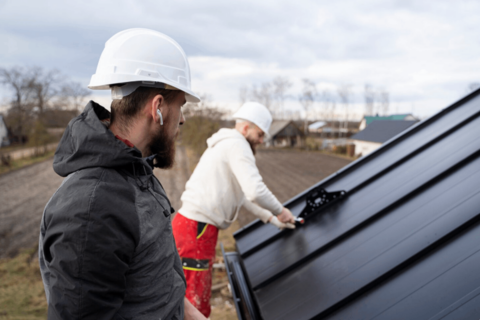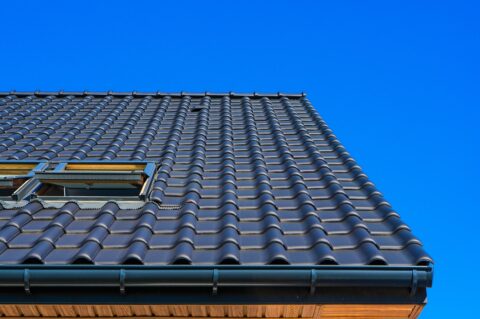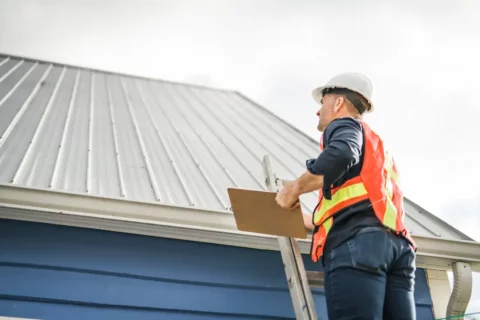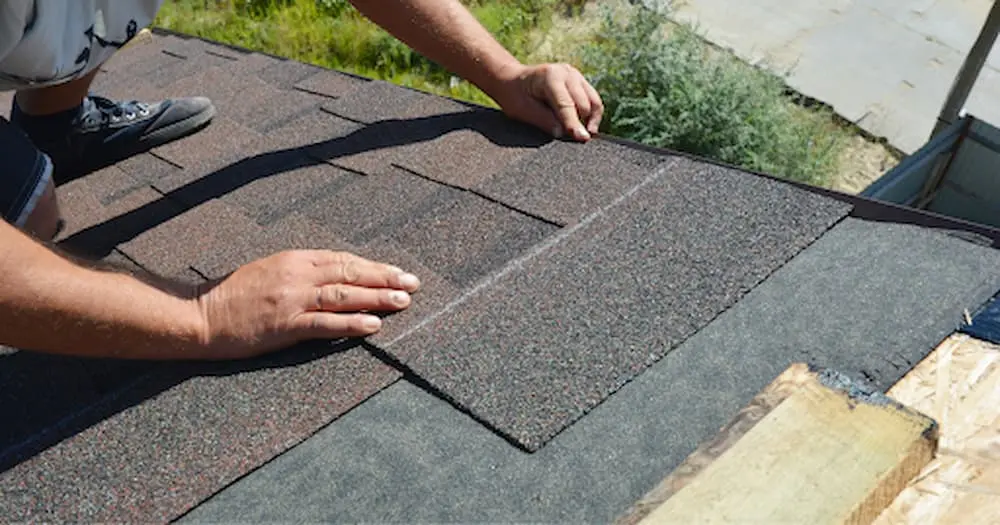
How Seasonal Weather Impacts Roof Lifespan in Denver
Denver’s unique climate, characterized by sunny days, sudden hailstorms, and heavy winter snowfall, creates a beautiful setting. Still, it also poses specific challenges for homeowners and building managers when it comes to roof care. If you’re wondering why your roof seems to wear out faster than expected or how to protect your investment better, understanding how seasonal weather impacts roofing in Denver is a good place to start.
In this article, we’ll examine each season’s effects on roof performance and lifespan, signs of weather-related damage, and how regular inspections from experienced Denver roofing companies like 303 Roofer can make a difference in both residential and commercial roof longevity.
Denver’s Climate: A Quick Overview
According to data from the National Weather Service and the National Oceanic and Atmospheric Administration (NOAA), Denver experiences:
- Over 300 days of sunshine each year
- Frequent hailstorms, particularly in spring and summer
- Snowfall averages 56 inches per year, primarily between October and April.
- Temperature swings of over 40°F in a single day, especially in spring and fall
This mix of sunshine, snow, hail, and temperature fluctuations can create expansion, contraction, and wear-and-tear cycles that affect even the most durable roofing materials.
Spring: Hail, Wind, and Moisture Intrusion
Spring is known for unpredictable storms in Denver, often bringing wind, rain, and hail. The city lies within what is referred to as “Hail Alley,” with some of the highest rates of hail activity in the United States.
Key Risks in Spring
- Hail Damage
- Hailstones can bruise or crack asphalt shingles, dent metal panels, and loosen flashing.
- Even small hail can compromise the integrity of the protective granules on shingles, exposing the roof to UV damage.
- High Winds
- Gusts can lift or curl shingles, especially if they were already weakened by prior seasons.
- Detached shingles expose the underlayment, increasing the risk of leaks.
- Water Penetration
- Spring rains may exploit existing vulnerabilities caused by winter ice or snow, leading to leaks or attic moisture buildup.
Maintenance Tip
Schedule a roof inspection after significant hailstorms to document any damage that may have occurred. This can help with insurance claims and prevent minor issues from escalating into major problems.
Summer: Intense Sunlight and UV Degradation
While 300 days of sunshine sounds great, prolonged exposure to the sun’s UV rays can gradually degrade roofing materials.
Key Risks in Summer
- UV Breakdown
- Prolonged sunlight causes roofing materials to dry out and lose flexibility.
- Asphalt shingles can become brittle and crack, reducing their waterproofing ability.
- Thermal Expansion
- Roofing materials expand in the heat and contract in cooler evenings. This repeated movement can weaken fasteners, sealants, and flashing.
- Poor Ventilation Issues
- Without proper attic ventilation, hot air becomes trapped, increasing indoor temperatures and potentially damaging the roof from underneath. This accelerates aging, especially in asphalt-based materials.
Maintenance Tip
Ensure your attic is well-ventilated and your roof has sufficient insulation. These steps reduce heat buildup and lower cooling costs as well.
Fall: Temperature Swings and Debris Buildup
Fall is often a mild and pleasant season in Denver, but it comes with its own set of roofing concerns.
Key Risks in Fall
- Temperature Fluctuations
- Denver can experience temperature changes of 30–40°F between daytime and nighttime.
- The freeze-thaw cycle begins in late fall, causing stress to roofing seams and joints.
- Debris Accumulation
- Falling leaves and branches can clog gutters, leading to poor drainage.
- Water pooling caused by blocked gutters can damage fascia and the lower roofline.
- Missed Repairs Before Winter
- Minor issues, such as lifted shingles or cracked flashing, can worsen dramatically once snow and ice arrive.
Maintenance Tip
Clear gutters regularly and have your roof inspected before the first snowfall to ensure it’s winter-ready.
Winter: Snow, Ice Dams, and Freeze-Thaw Stress
Denver’s winters bring cold temperatures, snowfall, and ice, each of which presents a challenge for roof systems.
Key Risks in Winter
- Snow Load
- Snow accumulation adds extra weight. Older roofs or those with compromised framing may suffer structural stress.
- Inadequate drainage can lead to ice dams, which trap melting snow and cause leaks.
- Ice Dams
- This occurs when warm air from the attic melts snow, which refreezes at the colder roof edges.
- Water trapped behind dams can seep under shingles and leak into the attic or walls.
- Freeze-Thaw Cycle
- Melted snow can refreeze overnight, creating expansion in small roof cracks or near flashing, which can worsen structural integrity over time.
Maintenance Tip
Insulating your attic and sealing air leaks can prevent warm air from escaping, which helps reduce the formation of ice dams.
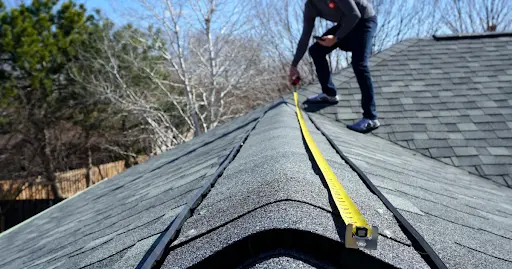
Roofing Materials and Their Seasonal Performance
Some materials are better suited to handle Denver’s climate than others. Here’s how common residential roofing materials hold up seasonally:
| Material | UV Resistance | Hail Resistance | Snow Load Tolerance | Lifespan (Average) |
| Asphalt Shingles | Moderate | Low to Moderate | Moderate | 15–30 years |
| Metal Roofing | High | High | High | 40–70 years |
| Clay/Concrete Tile | High | Low | Moderate | 50+ years |
| Synthetic/Composite | High | Moderate to High | High | 30–50 years |
Note
Hail resistance is best in metal and synthetic roofs, while asphalt roofs remain the most cost-effective option but require more frequent inspections.
Signs That Seasonal Weather Has Damaged Your Roof
No matter the season, here are common warning signs that your roof may need professional attention:
- Missing, curled, or cracked shingles
- Granule loss is visible in gutters.
- Sagging areas on the roof
- Leaking in the attic or around skylights
- Ice is forming along the roof edge.
- Higher-than-usual energy bills (poor insulation or ventilation)
Catching these issues early can mean the difference between a minor repair and a complete roof replacement.
Why Local Expertise Matters
Many out-of-state contractors show up after major storms, offering quick fixes. However, these temporary solutions often fall short of what is genuinely needed in Denver’s demanding environment.
Choosing local, experienced Denver roofers means:
- Understanding Denver’s permitting and inspection requirements
- Using materials tested for regional conditions
- Reliable post-installation service for years to come
303 Roofer, with years of experience serving the greater Denver area, specializes in durable roofing systems designed for the city’s four-season climate.
How Often Should Denver Roofs Be Inspected?
The National Roofing Contractors Association (NRCA) recommends homeowners get a professional roof inspection twice a year, ideally once in the spring (after winter) and once in the fall (before snow begins).
For commercial buildings, inspections should align with your facility maintenance schedule and include infrared moisture scanning for flat or low-slope roofs.
Protecting Your Investment: Seasonal Roofing Checklist
Spring
- Check for hail damage
- Schedule a post-storm inspection.
- Clear gutters and downspouts
Summer
- Inspect attic ventilation
- Look for brittle or curled shingles.
- Trim tree branches near the roofline
Fall
- Clear gutters and drains
- Inspect flashing and roof edges.
- Seal roof penetrations (vents, chimneys, etc.)
Winter
- Remove heavy snow with a roof rake (carefully)
- Watch for icicles or ice dams.
- Monitor for leaks or ceiling stains.
Denver Weather Demands Smart Roof Care
Denver’s seasonal weather puts your roof to the test. From hailstorms in the spring to snow load in the winter, each season affects your roof differently, but all year long, proper maintenance and timely inspections are key to extending its lifespan.
Whether you’re a homeowner or a property manager, working with trusted Denver roofing companies ensures your roof is well-prepared for the local climate’s challenges.
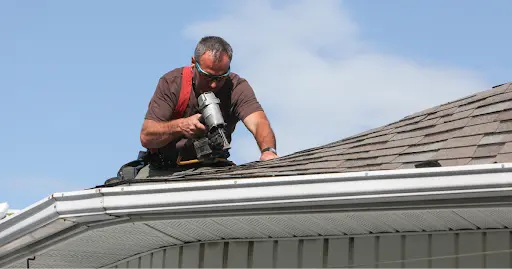
Book Your Free Roof Inspection with 303 Roofer Today
Is your roof ready for the next Denver season?
Don’t wait until you see a leak or lose shingles to discover the problem. 303 Roofer offers professional residential and commercial roofing services tailored for Denver’s unique climate. Our team will inspect, maintain, and repair your roof with honest advice and high-quality workmanship.
Serving Denver, Colorado, and surrounding communities
Schedule your free inspection today at 303roofer.com
For more tips, seasonal checklists, and expert advice, explore our blog.

